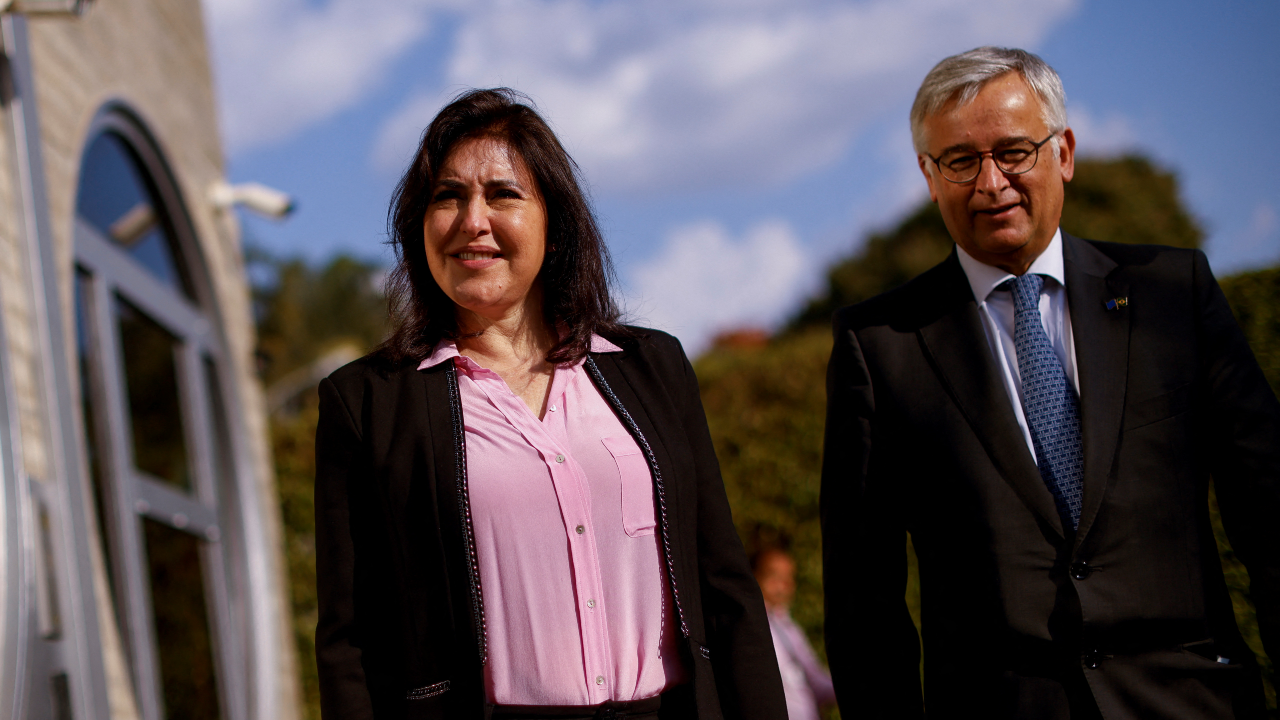The first round of the presidential elections in Brazil took place this Sunday, October 2, and was marked by much tighter results than expected. Luiz Inácio ‘Lula’ da Silva, the great favorite of the election, finally gathered 48.4% of the votes, ahead of Jair Bolsonaro by 5 points, with 43.2%. The former president and the current president will face each other in a second round on October 30, the result of which is unpredictable in a context of historical polarization.
The Brazilian electoral afternoon was marked by much uncertainty regarding the results.
Jair Bolsonaro, to whom the polls predicted around 33% of the vote, led the elections for a large part of the afternoon. It was only after passing 70% of the votes counted that ‘Lula’, the great favorite in these presidential elections, finally overtook him and finished with 5 additional points. ‘Lula’ finished with 48.4% of the votes and Bolsonaro with 43.2%.

‘Lula’ came out weaker than expected from this election. Some managed to hope for a victory in the first round, reaching the minimum of 50% of the necessary votes. But the results, which made Brazilians tremble for much of the count, ruled out this possibility as the votes to be counted ran out.
Bolsonaro remains on the political scene despite his controversial mandate
Jair Bolsonaro arrived at the presidential elections weakened after a mandate that earned him much criticism, especially for his management of Covid-19, which left nearly 700,000 dead in the country. But the far-right once again managed to stay at the center of the political scene.
Although people could be tired or disappointed after Bolsonaro’s 4 years in power, tonight’s result showed that Bolsonaro is still far from losing the election and that it will not be easy for ‘Lula’ to snatch the presidential chair.
Bolsonaro acknowledged that people had shown their willingness to change in the country, but assured that he would do everything to show Brazilians that he is still the best option. “I understand that there is a will to change, but certain changes may be for the worse,” said the president after the announcement of the results.

“We have a second round ahead” and “we will be able to show the population that inflation is going down” and that the government “has not stopped serving the poorest” through various subsidies that were approved in recent months, said the current leader.
An extreme polarization in the South American country
The scrutiny this Sunday and the surprisingly high result of Jair Bolsonaro was proof that the Brazilian population is deeply polarized.
Bolsonaro managed to gather a high percentage of votes, which means that, despite criticism of his presidency, he maintains solid foundations.
The two men who make it to the second round have completely opposite programs and between them they gathered more than 90% of the total votes, leaving the other 9 candidates far behind.

In addition, the levels of violence that characterized the electoral campaign resulted in several murders, many death threats, and a general atmosphere of fear. Only since January, Brazil registered 27 cases of murders and attacks against candidates and pre-candidates.
On September 24, in a bar in Cascavel, a small city in the state of Ceará, a man stabbed to death another who identified himself as a ‘Lula’ voter. The next day, after a fight in a bar, a Bolsonaro supporter was also stabbed in the south of the country. They are just two of several examples of politically motivated deaths that preceded this Sunday’s election.
3 out of 4 voters in Brazil fear politically motivated attacks, and while political violence is not new, it reached record levels this year. “We are facing a frightened population. About 3% of those surveyed, which would represent 5 million Brazilians” said they had been “victims of political violence,” explained Mônica Sodré, a political scientist and director of the Political Action Network for the Sustainable development.
As Simone Pitta, a lawyer from the Pontifical Catholic University of Rio de Janeiro, also recalled, the Brazilians were unable to attend a real political debate between the candidates. Many times, politicians only criticized each other, without focusing on their political program, which, in a democracy, is what allows them to choose their candidate.
‘lula’ remains optimistic about victory in second round
Former President Luiz Inácio ‘Lula’ da Silva expressed this Sunday his confidence in winning the elections against President Jair Bolsonaro in the second round. “We are going to win the elections. This is just an extension,” said ‘Lula’ in a speech after the announcement of the results.
‘Lula’ led the elections this Sunday with 5 points difference with Bolsonaro. In addition, he could benefit from the transfer of votes from supporters of Ciro Gomez, from the Democratic Labor Party, who managed to collect 3% of the vote. Although Gomes does not hide his suspicion against the leader of the Workers’ Party (PT), his program is closer to that of ‘Lula’.

‘Lula’ was supported at the end of the day by several Latin American leftist leaders, such as the president of Colombia, Gustavo Petro: “I congratulate ‘Lula’ for his victory in the first round,” Petro said on his Twitter account.
The Argentine president, Alberto Fernández, also hailed his victory, “I congratulate my dear ‘Lula’ for his victory in the first round and I convey my sincere respect to the people of Brazil for their deep democratic expression,” the Argentine president wrote in his account official Twitter social network.
However, ‘Lula’ will have to continue campaigning for 4 weeks in a second electoral round in which he is the favorite but in which nothing is guaranteed.
Simone Tebet, the surprise of the election
The candidate who came in third position is Simone Tebet, from the Brazilian Democratic Movement, with 4.1% and almost 5 million votes. Although her result is very distant from that of her opponents ‘Lula’ and Bolsonaro, Tebet overtook Labor Party member Ciro Gomes (3.0%), an important figure in recent decades.
Before the television cameras, Tebet was ratified as an alternative between President Jair Bolsonaro and former president Luiz Inácio ‘Lula’ da Silva, being, among the three, the only woman and new figure on the scene.

According to Simone Pitta, there is still a lack of women’s representation on the political scene and in Congress, for example, and politics remains “a hostile place” for women.
However, the fact that Brazil had 4 female candidates in the presidential elections and that one of them came in third could also be decisive in the second round, at a time of high disapproval of women towards President Jair Bolsonaro.
With EFE and local media











